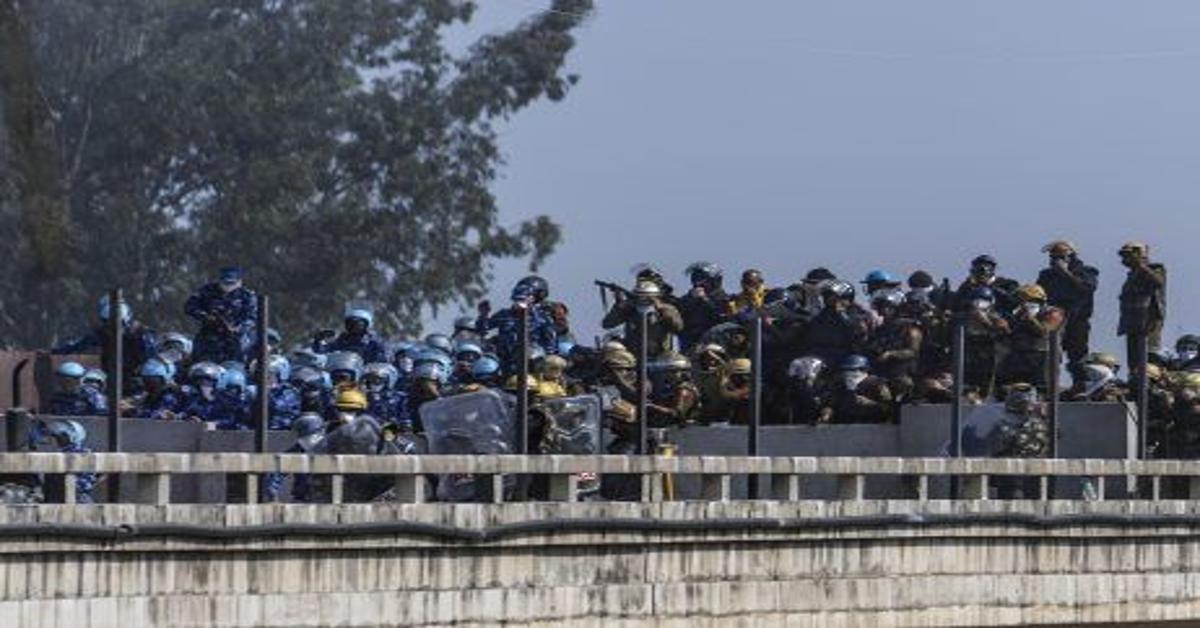
Indian farmers have declined the Modi government's proposal for a five-year agreement ensuring minimum prices for five different crops, reiterating their resolve to march toward New Delhi
Indian farmers, who have been protesting for a week to demand guaranteed crop prices, have turned down a proposal from the government and declared their intention to persist with their journey toward the capital, New Delhi.
The farmers in protest commenced their march last week, but their advancement toward the city has been impeded by authorities. Highways leading to the capital have been obstructed with cement blocks, metal containers, barbed wire and iron spikes by the authorities in an effort to prevent a recurrence of the prolonged 2021 farmers' protests, during which the farmers encamped on the outskirts of the city for more than a year.
The farmers are advocating for legislation that would ensure minimum prices for 23 different crops. Late on Monday night, leaders of the farming community announced their rejection of the government's proposal for a five-year contract guaranteeing prices for five crops, including pulses, maize and cotton.
Jagjit Singh Dallewal, a prominent protest leader, conveyed to the Press Trust of India news agency that the government's offer on Sunday was not favorable to the farmers' interests. He stated that the farmers, numbering in the tens of thousands and stationed around 200 kilometers (124.27 miles) away from the capital in anticipation of a government resolution, will recommence their journey to New Delhi on Wednesday.
Dallewal urged the government to address their concerns or allow them to proceed to Delhi without hindrance to peacefully voice their dissent.
These demonstrations mark a resurgence of a movement that originated over two years ago when thousands of farmers staged a prolonged protest on the outskirts of New Delhi, leading to the eventual repeal of contentious agricultural laws by the government.
The current protests revolve around the farmers' demand for legislation ensuring minimum prices for their harvests. The government currently safeguards agricultural producers against drastic price drops by setting a minimum purchase price for essential crops, a practice established in the 1960s to bolster food reserves and avert shortages. While this system encompasses 23 crops, the government typically guarantees minimum prices only for rice and wheat.
The farmers argue that a guaranteed minimum support price for all 23 crops would provide stability to their incomes. Additionally, they are pressing for the fulfillment of promises to double their earnings, forgive debts, and withdraw legal actions initiated against them during the previous protests in 2021.
Despite numerous discussions between farm leaders and government representatives, a resolution remains elusive. Piyush Goyal, a minister engaged in negotiations with the farmers, conveyed to PTI that some of the farmers' demands are intricate and policy-driven, complicating the search for a mutually acceptable solution.
These protests unfold at a critical juncture for India, with national elections anticipated in the near future and Prime Minister Narendra Modi's party poised for a potential third consecutive term. Farmers hold particular significance in Modi's support base, especially in states like northern Haryana, where a substantial farming population resides and is governed by his Bharatiya Janata Party.
Source: AP